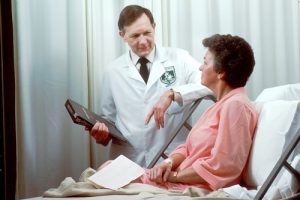
Dr. Robert Sands is a pulmonologist at the University of Utah. He is also one of the founding members of the CTTA. Dr. Sands specializes in using surgery and radiotherapy to treat patients with inflammatory disorders. Some of them include such as pleural mesothelioma and peritoneal mesothelioma. According to the American Cancer Society, he has been described as one of the world’s top surgeons for improving the overall survival and quality of life of cancer patients. He is so respected that he is performing surgeries on animals when he is not treating cancer patients.
Finally, there is Dr. Samir Melki, an oncology specialist. He is director of the radiation oncology unit at the John F. Kennedy Medical School at the University of Massachusetts Medical School in Worcester. Dr. Melki is also a member of the American Society of Clinical Oncology (ASCO). According to the ASCO, Dr. Melki is one of the nation’s leading surgeons managing malignant mesothelioma.
Of course, mesothelioma doctors cannot be ignored when it comes to the discussion of treatments available for this rare disease. After they are diagnosed, many people are surprised to learn that the treatments available today are much better than the remedies available years ago. One reason that this has happened is the focus on prevention. As more people understand the benefits of a healthy lifestyle and preventive measures, more will choose to live a life as healthy as possible. Today’s mesothelioma specialists are highly trained at finding these problems early, treating them as they arise, and preventing further damage from occurring.
What mesothelioma doctors typically do best is to treat patients using different approaches. They will use surgery, chemotherapy, radiation, and clinical trials to find the most effective method for combating the disease. Once the treatment options have been discussed, and a treatment plan has been developed, the patient can discuss the procedure’s details with the mesothelioma specialists. Details such as which approach will be the most effective, which may lead to a cure, which may need to be performed on more than one occasion, can be discussed.
If a cure is discovered, the doctors will work closely with the patients’ family members to help them deal with this diagnosis’s emotional and physical ramifications.
Patients may want to make an appointment with the clinical team to get a diagnosis. They may even want to set up an appointment to talk directly with the surgeon, the radiation oncologist, and the medical research staff working on the case. This way, these individuals can ask any questions they have about treatment protocols or progress that has been made so far.
It is also essential for patients to ask the doctors about their patient care philosophy and whether they will stick by their initial appointment to provide care if something changes. It may take some time to adjust to a new work schedule or other circumstances, but they should always ask how they will work with the new doctor once the initial appointment has come and gone.
Additionally, patients should ask about what would happen if something was to go wrong during the process, such as the unit not functioning correctly. If the patient experiences any discomfort, they should report it right away so that someone can deal with it. These are all the necessary standards that everyone should use when choosing an oncology specialist, and the best candidates for the job will usually be those who exhibit these traits.
